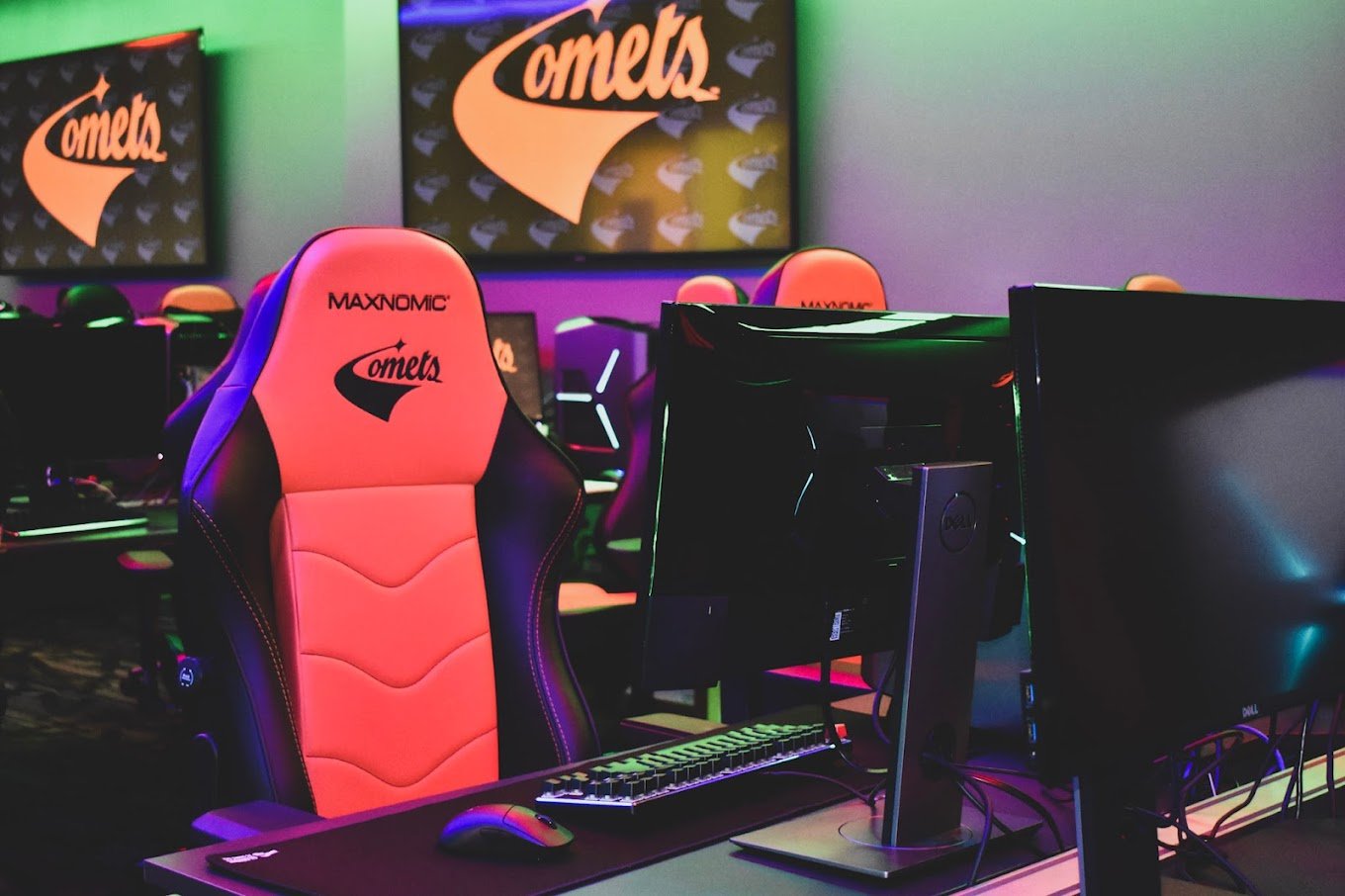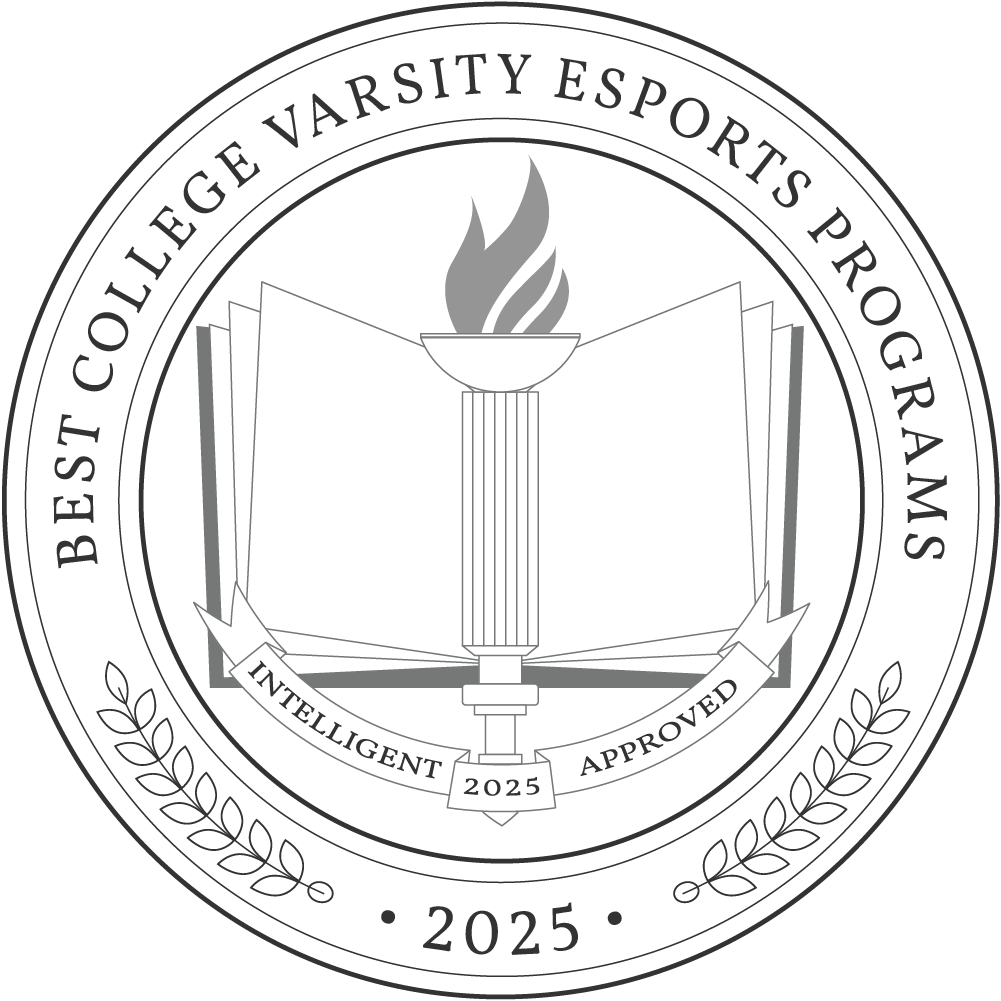College varsity esports have been around since 2014, and have been steadily growing in popularity. ESPN reports that there are now more than 125 college esports programs in the U.S. However the quality of a college’s esports program can vary widely, both in terms of the sports offered and the degree of participation required. We’ve reviewed the best colleges for varsity esports so you can choose the one that’s right for you.
Why This Matters
Video games have long been a popular pastime in college dorms, but varsity esports programs take things to the next level, treating them as seriously as traditional sports. If esports are your thing, some schools offer scholarships and other incentives to attract the best players.
A college’s specific esports can vary but may include games like League of Legends, Madden, Overwatch, and Fortnite. In addition to arranging competitions between schools, varsity esports programs can give you access to the resources and equipment needed to stay on top of your game.
When comparing college varsity esports programs, it’s important to consider their commitment level. You might be expected to travel to regional tournaments to compete, just as you would with any other varsity sport.
The best college esports programs can serve as a stepping stone to a professional career in gaming or pair well with an academic program related to esports, such as a degree in video game development or art design.
Our Ranking Criteria
To put together our list of the best college varsity esports programs, we reviewed nearly two dozen of the best programs in the country and narrowed them down to the top 10. We relied primarily on the information available on each school’s website, considering the esports offered and whether or not the college is accredited.
The 10 Best College Varsity Esports Programs
1. Miami University (Ohio)

Miami University’s varsity esports program has been around since 2015 and was the first D1 varsity program in the country. Players have the opportunity to receive physical training, scholarships, and other benefits, and can take classes in Games + Simulation to pursue game development as a career path. The university strives to build a diverse and inclusive gaming community and offers a Junior Varsity program for students who want to compete without the commitment of being on a varsity team.
- Location: Oxford, OH
- Intelligent Score: 99.53
- Average Tuition: Resident: $282 per credit hour; Non-resident: $778 per credit hour
- Accreditation: Higher Learning Commission
- Student Enrollment: 16,864
2. University of California, Irvine

Starting in 2016, the University of California-Irvine was the first public university to offer an esports program. In addition to scholarships and competitions, UCI focuses on building an inclusive gaming community with an annual conference and support for gaming research and academics. Players train in a 3,500-sq.ft. esports Arena with 72 computers and a broadcast station. Other activities include spring intramurals, a Girls in Gaming Summer Camp, and an Overwatch Bootcamp. Given the school’s successful game design major, UCI is a natural place for esports to emerge.
- Location: Irvine, CA
- Intelligent Score: 98.36
- Average Tuition: Resident: $292 per credit hour; Non-resident: $1,052 per credit hour
- Accreditation: Western Association of Schools and Colleges (WASC) Senior College and University Commission
- Student Enrollment: 28,662
3. Maryville University

Maryville University in St. Louis has been developing its varsity esports program since 2015, winning several League of Legends national championships. The program focuses on two varsity-level games, LOL and Overwatch, but the Community Club maintains teams in several other games in a less competitive environment. Maryville University has several top-tier coaches and a modern training center with a lounge and dining area.
- Location: St. Louis, MO
- Intelligent Score: 98.27
- Average Tuition: $781 per credit hour
- Accreditation: Higher Learning Commission
- Student Enrollment: 5,809
4. University of Utah

The University of Utah has four varsity esports teams: Valorant, League of Legends, Rocket League, and Overwatch. They maintain a Twitch channel and Discord group where fans can stream live games and interact with players. Varsity players must be full-time students and have a GPA of at least 2.0 (2.5 if on scholarship). U of U also has an Entertainment Arts and Engineering Program offering a bachelor’s degree and a minor in game development.
- Location: Salt Lake City, UT
- Intelligent Score: 97.65
- Average Tuition: Resident: $740-$749 per credit hour; Non-resident: $2,838-$2,873 per credit hour
- Accreditation: Northwest Commission on Colleges and Universities
- Student Enrollment: 26,355
5. Illinois Wesleyan University

Despite its small size, Illinois Wesleyan University boasts an impressive varsity esports program, with facilities including a competition room and a broadcast studio. Players are expected to practice for up to 20 hours per week with their teammates and coach and participate in tournaments at a national level. IWU offers scholarships for games such as Fortnite, Super Smash Bros., and League of Legends, and has 50 computers in a dedicated gaming facility. It fields teams for LOL, Valorant, Rocket League, Overwatch, and Super Smash Bros. Ultimate.
- Location: Bloomington, IL
- Intelligent Score: 97.28
- Average Tuition: $1,796 per credit hour
- Accreditation: Higher Learning Commission
- Student Enrollment: 1,527
6. Boise State University

Boise State University has several varsity esports teams, including League of Legends, Overwatch, and Rocket League. Teams consist of 10-16 players, and scholarships are available for incoming and current students. Tryouts take place twice per year, and players are evaluated for their team play, communication, and attitude. BSU hosts live events as well as a broadcast Twitch channel.
- Location: Boise, ID
- Intelligent Score: 95.58
- Average Tuition: $252 per credit hour
- Accreditation: Northwest Commission on Colleges and Universities
- Student Enrollment: 22,922
7. Georgia State University

Georgia State University is part of the National Association of Collegiate Esports as well as the Georgia Esports League (GEL), giving players access to both national and regional competitions. Games include League of Legends, Overwatch 2, and Super Smash Bros. Ultimate. Players are eligible for scholarships if they maintain a 3.0 or higher GPA. The program is part of the Creative Media Industries Institute (CMII), which offers classes in Game Design, Media Entrepreneurship, and Computer Science.
- Location: Atlanta, GA
- Intelligent Score: 94.91
- Average Tuition: Resident: $306 per credit hour; Non-resident: $980 per credit hour
- Accreditation: Southern Association of Colleges and Schools: Commission on Colleges
- Student Enrollment: 28,924
8. University of Akron

The University of Akron’s varsity esports program, established in 2018, has rapidly become a national leader. It offers teams in games including Rocket League, Super Smash Bros. Ultimate, Overwatch 2, Call of Duty, Rainbow Six Siege, and Valorant. The program provides scholarships ranging from $1,000 to $2,500 for participants. Players benefit from academic support, including early class registration and tutoring, and have access to state-of-the-art training facilities. The school is a four-time national champion in Rocket League.
- Location: Akron, OH
- Intelligent Score: 94.55
- Average Tuition: Resident: $447 per credit hour; Non-resident: $767 per credit hour
- Accreditation: Higher Learning Commission
- Student Enrollment: 11,323
9. University of California at Berkeley

UC-Berkeley’s Cal Esports Community Center features a gaming library, 54 gaming setups, and a live-streaming broadcast center. More than 120 student-athletes play in Division 1 and 2 leagues, competing in Rocket League and Fortnite games. The program focuses on gender diversity in gaming and offers several Women in Gaming Initiatives to foster a more inclusive gaming environment.
- Location: Berkeley, CA
- Intelligent Score: 93.37
- Average Tuition: Resident: $438 per credit hour; non-resident: $1,578 per credit hour
- Accreditation: WASC Senior College and University Commission
- Student Enrollment: 32,479
10. The University of Texas at Dallas

The University of Texas at Dallas (UTD) boasts a distinguished varsity esports program, featuring teams in games such as Overwatch 2, League of Legends, Rocket League, Valorant, and Super Smash Bros. Ultimate. Established in 2018, UTD’s esports teams have achieved national recognition, including a top 10 ranking among collegiate programs. The university offers esports athletes scholarships and access to state-of-the-art facilities, including a dedicated esports arena.
- Location: Richardson, TX
- Intelligent Score: 90.55
- Average Tuition: Resident: $538 per credit hour; non-resident: $1,388 per credit hour
- Accreditation: Southern Association of Colleges and Schools Commission on Colleges
- Student Enrollment: 21,617
What Are the Benefits of Varsity Esports Programs?
If you’re into gaming, there are plenty of reasons to consider a varsity esports program, including the social, professional, and academic opportunities they offer. While gaming with your college friends can be fun, playing on a varsity team can open you up to a new level of competition. Here are just a few of the benefits to consider:
- Expanded social circle. Being part of a team can get you out of the dorm and interacting with other players on campus and at regional tournaments.
- Mental health. College can be stressful, so putting away your coursework and exercising your brain in a different way can be good for your mental well-being.
- Academic growth. A college esports program can complement your degree if you’re studying a subject related to video game design and development.
- Career opportunities. Some colleges offer academic scholarships to the best esports players, and you’ll have the opportunity to compete for prizes at major tournaments, potentially boosting your career prospects.
Who Should Varsity Esports in College?
Varsity esports isn’t for beginners, so to qualify for a team or be considered for a scholarship, you’ll need some experience with competitive gaming, such as competing in local tournaments during high school.
You’ll also want to think carefully about how much time you’ll have to spend on esports and whether you’ll be able to stay on top of your coursework. If esports is just your casual hobby, then you may want to consider an intramural esports league instead.
For those who are committed to esports, participating in a varsity program can be a fun and rewarding part of the college experience.
Interested in a degree instead?
Learn more about online degrees, their start dates, transferring credits, availability of financial aid, and more by contacting the universities below.

